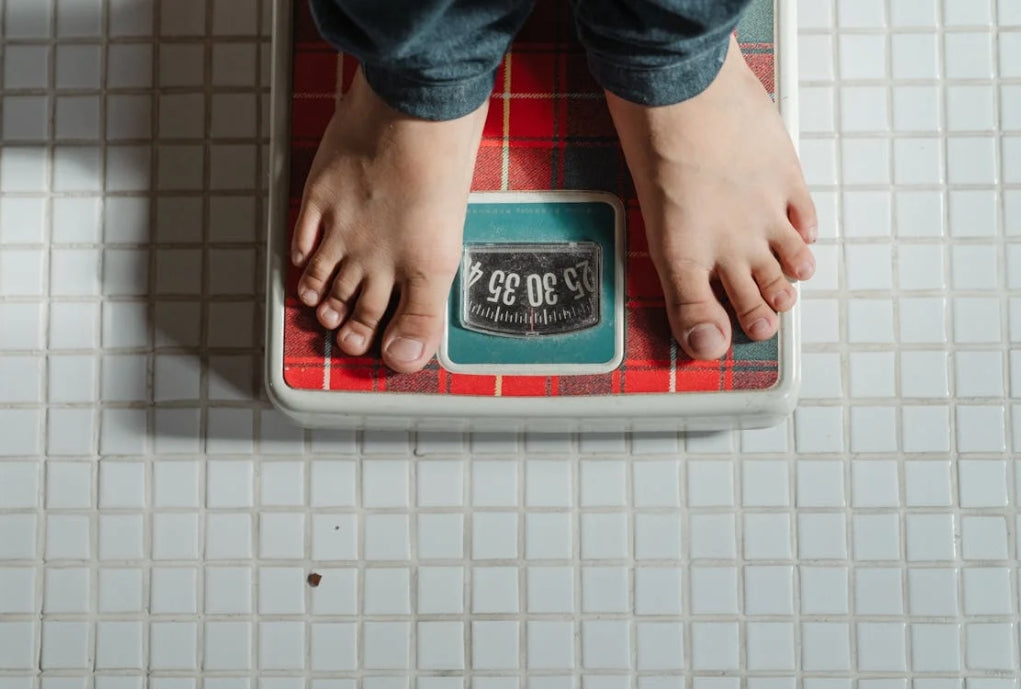The other day, while browsing the News, I came across a shocking headline: "Sleep Duration Can Determine Where Fat Accumulates?!"
According to the article, people who are sleep-deprived (getting less than 7 hours of sleep) have a higher body fat percentage in their torso, arms, and legs, and this is more common in women. In simpler terms, it means thicker arms and thighs! Oh no, that's a nightmare!
We often say that fitness is 30% exercise and 70% diet. However, I believe sleep is also crucial and should account for at least 30% of the equation. Today, let's explore the relationship between sleep, fat loss, and muscle gain.
Does Lack of Sleep Really Make You Gain Weight?
To demonstrate my expertise, allow me to share a scientific study with data backing it up.
At the beginning of 2022, Dr. Esra Tasali, the director of the Sleep Center at the University of Chicago's medical school, published a research survey on the relationship between sleep and obesity.
This randomized clinical trial involved 80 adults. Among them, Dr. Tasali and his team conducted a sleep intervention for adults who slept less than 6.5 hours, increasing their nightly sleep duration by 1.2 hours. When compared to the control group, the researchers found that:
Adults who increased their sleep duration reduced their total daily caloric intake by an average of 270 kcal! The conclusion is clear: extending sleep duration aids in weight loss (so, everyone, go to bed). 🤨

The Dangers of Insufficient Sleep Are Not Exaggerated
Why is it that despite our diligent workouts, meticulous diet, and consistent use of protein powders and muscle-building supplements, our fitness results are underwhelming? The likely reason is staying up late and not getting enough sleep!
1️⃣ Staying up late and getting insufficient sleep can lead to endocrine disorders. It can cause your skin to become rough, make you prone to edema, and even accelerate aging, taking away your youthful glow. 🥲
2️⃣ Staying up late reduces your body's metabolism. Tired muscles from the day don't get to rest, and our exercise efficiency and quality suffer as a result. 🏋️♀️
3️⃣ Lack of sleep stimulates the secretion of hunger hormones and suppresses the hormone leptin, leading to increased appetite and a higher chance of obesity, especially in the thighs and arms. 🦵🏻💪🏻
Insufficient Sleep = Reduced Insulin Sensitivity
Insufficient Sleep = Lowered Impulse Control
Insufficient Sleep = Decreased Recovery Ability
Insufficient Sleep = Reduced Concentration
Can Getting Enough Sleep Help Build Muscle?
⚠️ Insufficient sleep does not affect your athletic performance, meaning you can still lift heavy weights and train at high intensities, but you'll feel more fatigued than when you're well-rested.
1️⃣ Quality sleep can promote the secretion of testosterone and inhibit the hormone cortisol. In simpler terms, it helps the body lose fat, build muscle, and achieve a well-defined physique.
2️⃣ Adequate sleep allows us to be energetic and full of vitality. We can easily accomplish our designated training goals, feeling like we can conquer the world.
3️⃣ During sleep at night, our bodies secrete growth hormone, which is an essential element for protein synthesis and aids in muscle growth. Thus, good sleep quality is the key to muscle growth.
Do you ever feel this way?
On weekdays, even though you're exhausted during lunchtime, you can't seem to fall asleep despite wearing noise-canceling headphones and lying on your desk. Or, in the middle of the night, you toss and turn in bed, your eyes wide open like copper bells. Or just as you start to feel drowsy, a slight noise wakes you up.
This is because when we sleep, our brains don't fully rest along with our bodies but continue to receive sounds. No matter how quiet the room is, any sudden noise can alert our brains and prevent us from falling asleep.
To achieve high-quality sleep, we need to create a stable sound environment for our brains, protecting us from external noise disturbances.

Midday Naps 💤
You can only rest for 15-30 minutes.
After lunch, find a comfortable position on your desk or in your bed. Choose a suitable course, close your eyes, and feel the freedom and relaxation (I've personally tested it, and it works every time I listen).
Recommended for Deep Night's Sleep 💤
A Dreamless Slumber Until Dawn
(Don't worry, there's definitely no annoying phrase like "Congratulations, the course is over" that might wake you up.)
If you exercise excessively before bed, feel mentally stimulated, or have aches and pains from fatigue, making it difficult to fall asleep; or if you're anxious, depressed, and can't stop tossing and turning in bed, enjoy 30 minutes of deep relaxation to calm your excited brain and release the tension in your body! Choose from male or female voices to help you fall asleep as soon as you hit the bed, ensuring a dreamless night!
Recommended for most of our happiness comes from something slightly better than usual.
For example:
"I slept really well last night, and when I opened my eyes, the alarm clock just happened to go off."
I wish you all a good night's sleep tonight. 🌃



